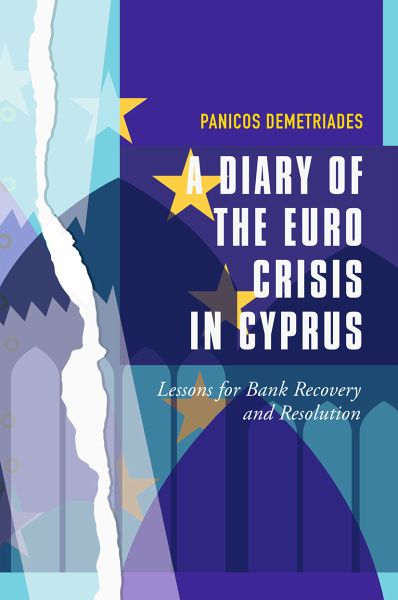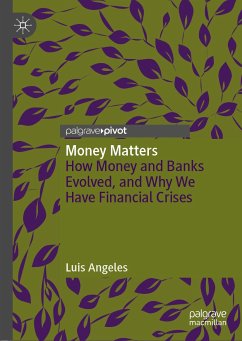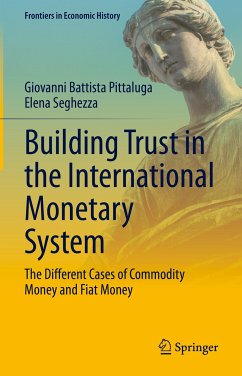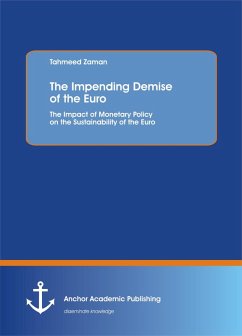
A Diary of the Euro Crisis in Cyprus (eBook, PDF)
Lessons for Bank Recovery and Resolution
Versandkostenfrei!
Sofort per Download lieferbar
36,95 €
inkl. MwSt.
Weitere Ausgaben:

PAYBACK Punkte
18 °P sammeln!
This book tells the story of the euro crisis in Cyprus from the inside. Written by the former Governor of the Central Bank of Cyprus, Panicos Demetriades, who was in office during this turbulent period, this book shows how the crisis unravelled through a series of key events that occurred during his tenure.Written in chronological order, and broadly based on the author's personal diary, starting from his first day in office, this volume brings together economics, banking, regulation, governance, history, politics and international relations.Presenting personal witness statements, including rec...
This book tells the story of the euro crisis in Cyprus from the inside. Written by the former Governor of the Central Bank of Cyprus, Panicos Demetriades, who was in office during this turbulent period, this book shows how the crisis unravelled through a series of key events that occurred during his tenure.
Written in chronological order, and broadly based on the author's personal diary, starting from his first day in office, this volume brings together economics, banking, regulation, governance, history, politics and international relations.
Presenting personal witness statements, including records of noteworthy telephone conversations, informal meetings and other milestones, it examines crucial questions like: How did Cyprus become so systemically important to the rest of the euro area? Why was Cyprus treated so differently in comparison to other peripheral countries in Europe? Why were bank depositors targeted? What role did Cyprus' links with Russia play in the design of the programme? What has been the toxic fallout from the bail-in? Are there any longer-term implications for the euro? What are the lessons for regulators around the world?
The book will appeal to readers interested in financial crises, the euro's architecture, the evolution of the European Monetary Union, and those with an interest in how Europe and the IMF dealt with crises in peripheral European countries.
Written in chronological order, and broadly based on the author's personal diary, starting from his first day in office, this volume brings together economics, banking, regulation, governance, history, politics and international relations.
Presenting personal witness statements, including records of noteworthy telephone conversations, informal meetings and other milestones, it examines crucial questions like: How did Cyprus become so systemically important to the rest of the euro area? Why was Cyprus treated so differently in comparison to other peripheral countries in Europe? Why were bank depositors targeted? What role did Cyprus' links with Russia play in the design of the programme? What has been the toxic fallout from the bail-in? Are there any longer-term implications for the euro? What are the lessons for regulators around the world?
The book will appeal to readers interested in financial crises, the euro's architecture, the evolution of the European Monetary Union, and those with an interest in how Europe and the IMF dealt with crises in peripheral European countries.
Dieser Download kann aus rechtlichen Gründen nur mit Rechnungsadresse in A, B, BG, CY, CZ, D, DK, EW, E, FIN, F, GR, HR, H, IRL, I, LT, L, LR, M, NL, PL, P, R, S, SLO, SK ausgeliefert werden.












